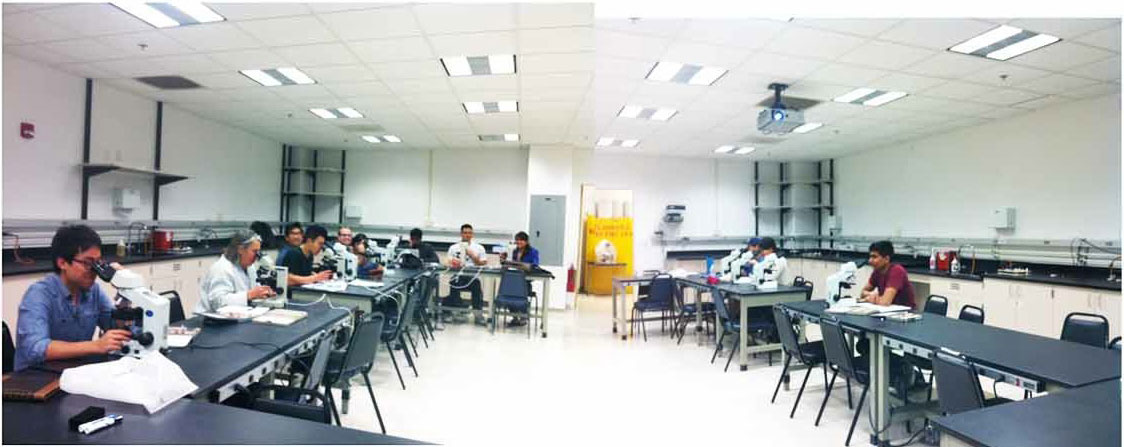|
|
Education
Practical Histopathology in mouse models of human disease:
Guides to Phenotyping the Genetically Altered mouse

Course Organization
-
Scope and Outline
The course is designed to guide investigators with the analysis of genetically altered mice. Lecture topics will emphazie use of histology, histochemistry, immunohistochemistry, in the interpretation of the histopathology of the various organ systems. Those who will benefit from attending the course will be graduate students, medical students, post-doctoral fellows and interested faculty. POSTDOCTORAL FELLOWS WHO ARE NOT AT UCSD MAY ATTEND THE COURSE. Lecture topics will include technical information and protocols, along with discussions on the various phenotyping methods available to help with the analysis of genetically altered mice, as compared with littermate controls. Identification of the different tissues and cell types in the body and the ability to detect abnormalities, will be the goal, thus enabling the optimal phenotypic analysis of genetically altered mice.
-
Teaching methods
One two hour lecture/ demonstration per week for 8-10 weeks.
Lectures, demonstrations, multi media and computer support
-
Source Material
Textbooks:
- Pathology of the mouse. Ed. Robert R. Maronpot. Cache River Press. ISBN: 1-889899-02X
- di Fiores Atlas of Histology. Victor P. Eroschenko Lee and Febiger
- Histology. A text and Atlas. Ross, Romrell and Kaye. Williams and Wilkins. ISBN: 0-683-07369-9
- Human Histology. Stevens and Lowe. Mosby. ISBN: 0-7234-2485-3
- An Atlas of Histology. Zhang. Springer. ISBN: 0-387-94954-2
- Pathologic Basis of disease. Robbins, Kumar and Collins. Saunders. ISBN: 0-7216-7335-X
- The Laboratory Mouse. Suckow, Danneman, Brayton. CRC Press. ISBN: 0-8493-0322-2
- A Color Atlas of Sectional Anatomy of the mouse. Iwaki, Yamashita, Hayakawa. Braintree Scientific Inc. ISBN: 4-900659-58-4
- The Atlas of Mouse development. Kaufman. Academic Press. ISBN 0-12-402035-6
- The House Mouse. Atlas of Embryonic development. Theiler. Springer-Verlag. ISBN: 0-387-05940-7
- Manipulating the mouse embryo, a laboratory manual. Hogan, Beddington, Costantini, Lacy. Cold Spring Harbor Laboratory Press. ISBN: 0-87969-384-3
These PDFs will introduce topics for self learning
Sample photographs:
|
|
